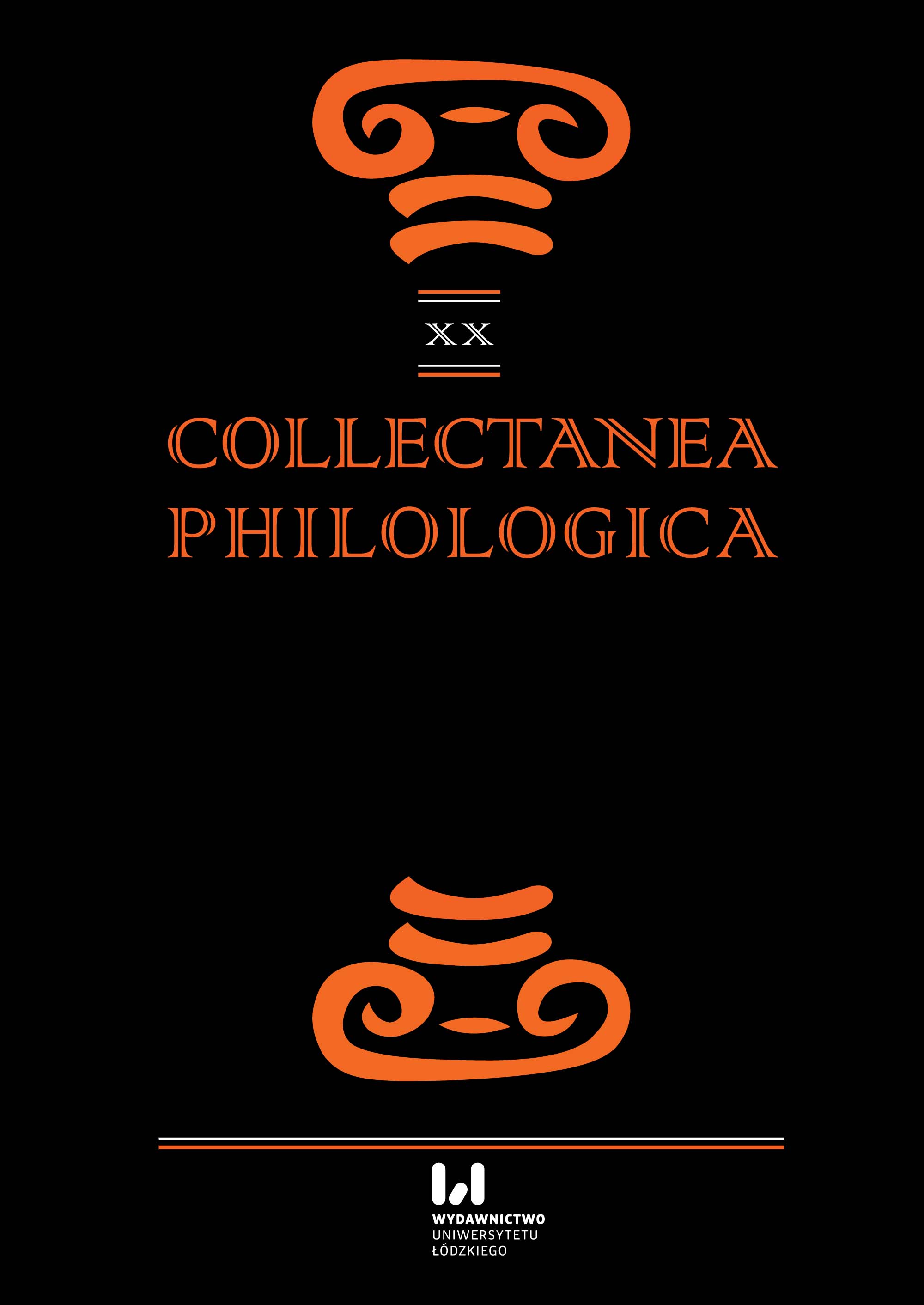Word ἔκχυτον in IX 395 Epigram of The Greek Anthology
DOI:
https://doi.org/10.18778/1733-0319.20.08Keywords:
the Greek Anthology, Greek epigram IX 395, Palladas of Alexandria, word “ekchyton”Abstract
The article aims to present one of the possible interpretations of a unique noun ekchyton found in the epigram of Palladas of Alexandria AP IX 395. As its meaning seems at least doubtful, it makes the satisfactory translation and interpretation of the poem utterly unachievable. The problem may be solved, if we recognize the word ekchyton as a sociolect, which corresponds with another noun egchytos that is sufficiently attested in ancient Greek literature. The analysis of source texts lets us interpret the meaning of the word egchytos as a kind of elegant baking that consists of finely ground flour, a large amount of honey, eggs and cottage cheese or sour milk. Ekchyton, in that case, can be interpreted as ‘a honey cake with cheese’.
References
Adler, A. (ed.) (1931). Suidae lexicon. Vol. 2. Leipzig: Teubner.
Google Scholar
Atenajos (2010). Uczta mędrców. Przekład, wstęp i komentarz K. Bartol, J. Danielewicz. Poznań: Wydawnictwo Poznańskie.
Google Scholar
Bartol, K. (1999). „Nawiązania do Iliady i Odysei w epigramach Antologii Palatyńskiej”. Collectanea Classica Toruniensia. Studia Graeco-Latina III. 27–44.
Google Scholar
Jacobs, F. (1801). Animadvertiones in epigrammata Anthologie Graecae. Lipsiae: Teubner.
Google Scholar
Kaibel, G. (ed.) (1887–1890). Athenaei Naucratitae Dipnosophistarum libri XV. Lipsiae: Teubner.
Google Scholar
Liddell, H., Scott, R. (1996). A Greek-English Lexicon. Rev. H. S. Jones, with a revised supplement. Oxford: Clarendon Press.
Google Scholar
Mühll von der P. (ed.) (1962). Homeri Odyssea. Basel: Helbing & Lichtenhahn.
Google Scholar
Paton, W. R. (1960). The Greek Anthology. Vol. 3. Oxford: Loeb.
Google Scholar
Stephanus, H. (ed.) (1848–1854). Θησαυρὸς τῆς ᾿Ελλενικῆς γλώσσης. Thesaurus Graecae linguae. Parisiae: Firmin Didot Fratres.
Google Scholar
White, H. (1998). “Notes on Palladas”. Myrtia 13. 225–230.
Google Scholar
Zalewska-Jura, H. (2009). Jak Palladas z Homera żartował. W: S. Dereń-Głowacka, A. Kwiatkowska (red.). Humor. Teorie – Praktyka – Zastosowania. Zrozumieć humor. vol. 2/1. Piotrków Trybunalski: Naukowe Wydawnictwo Piotrkowskie. 179–183.
Google Scholar












